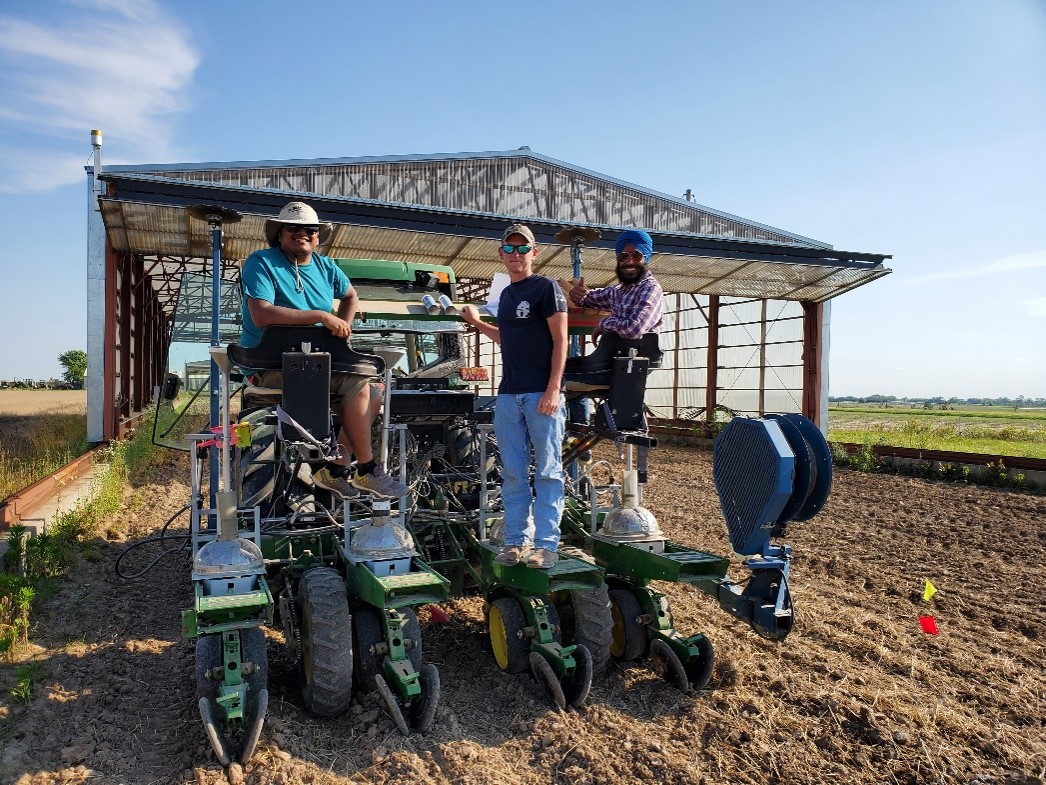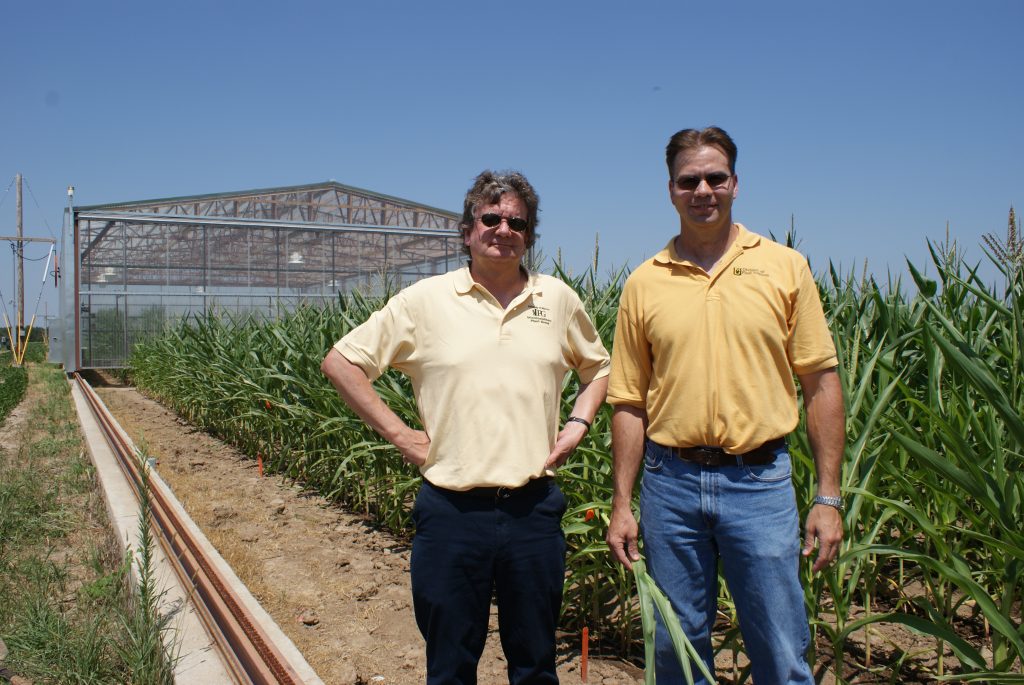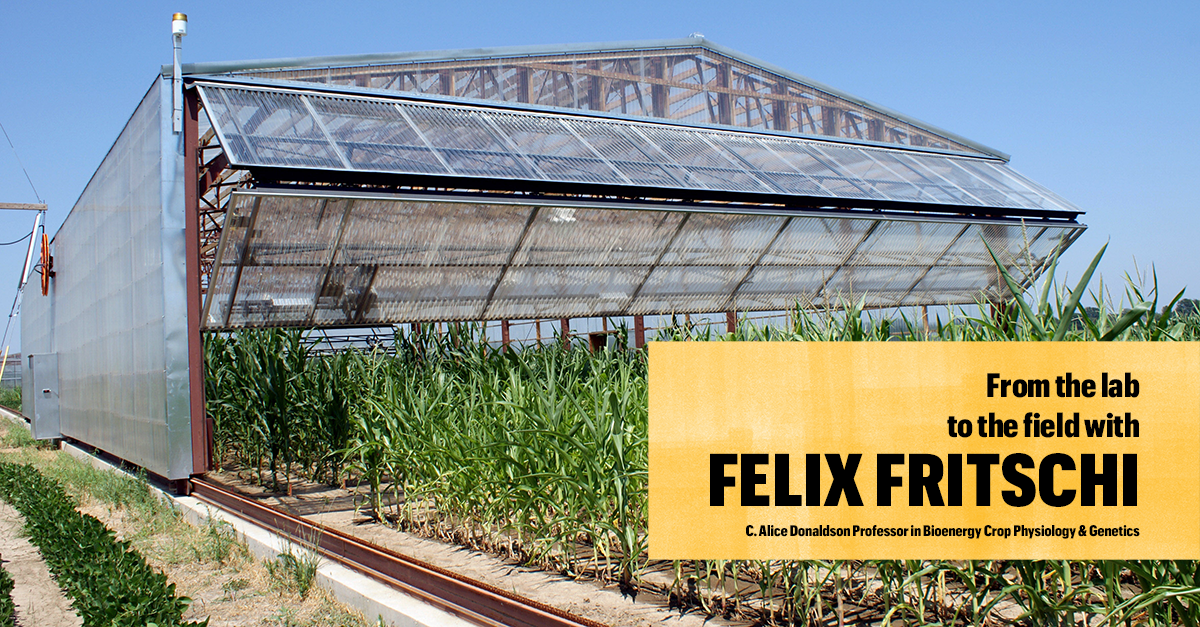Principal Investigator
Felix Fritschi, Ph.D., is an endowed professor at the University of Missouri who holds the C. Alice Donaldson Professorship in Bioenergy Crop Physiology and Genetics.
Mission
The mission of our lab is to conduct high-quality research and provide first-rate training in a collegial, friendly atmosphere. We foster academic excellence by providing a stimulating environment for learning and research. We encourage creative thinking, engage in rigorous discussions, and promote and strive for collaborative research within and across disciplines.
We strive to maintain a dynamic research environment, a diverse group of individuals, and are interested in a collaborative research projects at the local, national and international level. We encourage you to contact us if you are interested in joining our group or would like to explore collaborative projects.
Learn more about opportunities to join our lab.
Research

The overall theme of our research is to develop a better understanding of crop responses to their environment, and to translate that understanding into the development of efficient and sustainable cropping practices.
Production of sufficient food to sustain an increasing number of people on our planet in the face of global environmental changes is a tremendous challenge. Future food, feed, fiber and energy needs will require the development of plants and production practices that generate greater yields per unit area.
Our lab is interested in problem-solving research that addresses real-world issues. Group members conduct experiments at various scales and employ a broad range of techniques in the hope that we can contribute knowledge useful to address real problems.
Research News
Battling Drought
Drought simulators look at how reduced water availability affects plants and crops

Droughts can have a devastating effect on farms. As one of the leading causes of crop failure, droughts impact consumer costs and livestock nutrition.
To combat these drought problems, researchers at the University of Missouri are keeping it dry every year in two drought simulators at the Bradford Research Center. The simulators enable scientists to study how reduced water availability affects plants and crop productivity.
The shelters look like 50-by-100-foot greenhouses on railroad tracks. They move away from test plants when the weather is sunny and cover the plots when rain approaches, allowing the crops under the shelter to experience drought-like conditions.
“This project provides Missouri scientists with state-of-the-art field facilities to conduct a broad range of drought-related translational research,” said Felix Fritschi, the C. Alice Donaldson Professor in Bioenergy Crop Physiology and Genetics in CAFNR’s Division of Plant Sciences, who leads the effort. “Our objective is to take laboratory discoveries in basic plant drought research and develop real-world products and practices to improve food security and increase profitability for farmers.
High Tech, Low Cost
CAFNR researchers team up with College of Engineering to create robotic technology as a cost-effective method to study Missouri crops
A two-pronged robotic system pioneered by University of Missouri researchers is changing the way scientists study crops and plant phenotyping.
Felix Fritschi, associate professor in the Division of Plant Sciences, and Suhas Kadam, a postdoctoral fellow in Fritschi’s laboratory, have teamed up with Gui DeSouza, associate professor of electrical engineering and computer science in the College of Engineering and his Vision-Guided and Intelligent Robotics (ViGIR) Laboratory to study the effects of climate change on crops in Missouri.

